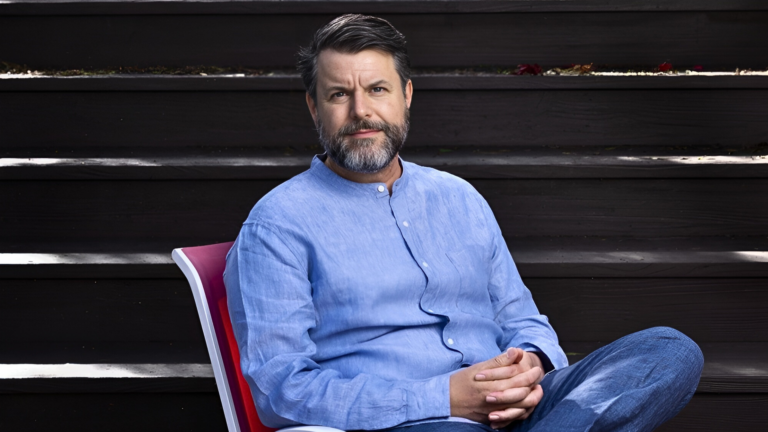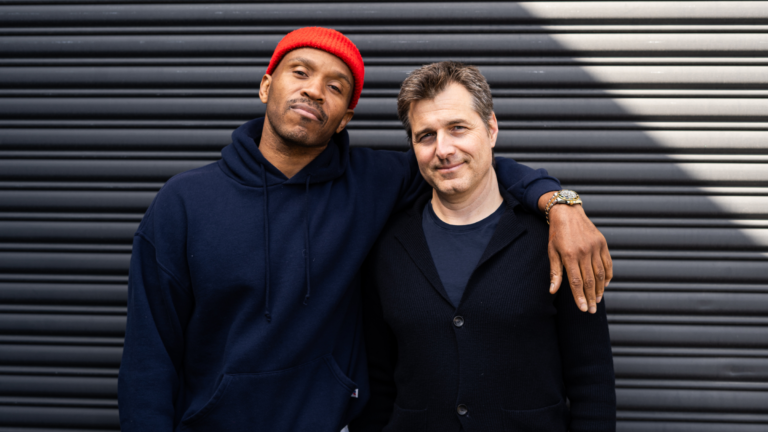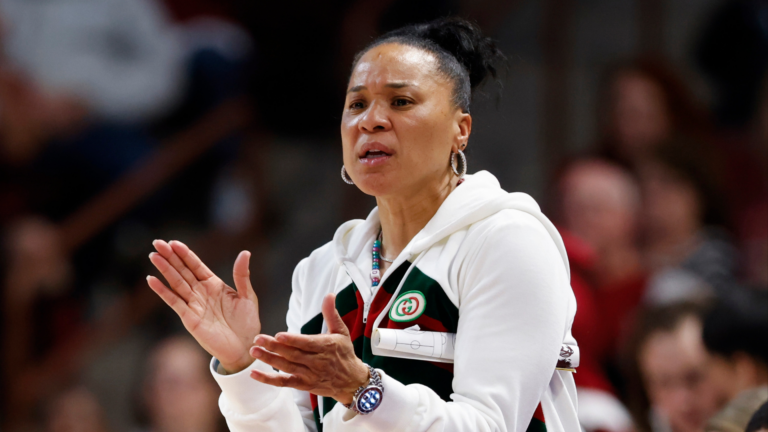When it comes to reinvention, Apolo Ohno has found an impressive mastery all his own.
A 2019 inductee into the Olympic Hall of Fame, Apolo still holds the title for most decorated American at the Winter Olympics with 8 medals as a short track speed skater. However, after hanging up his skates in 2010, Apolo found himself struggling with purpose, and confused about how he was going to navigate his transition from sport.
Transitions are real for all of us. As we all know, a lot has gone down in the last four years; we’ve all had to navigate some real shifts and a lot of uncertainty.
That’s one of the reasons I’m so excited to share this conversation – Apolo was first on the podcast back in 2019 (episode #193), and it’s a privilege to have him back in the studio to hear how he’s taken his mastery of the “hard pivot” in speed skating and applied it to life.
His bestselling book, Hard Pivot: Embrace Change, Find Purpose, Show Up Fully, details this journey while offering up five golden principles for practical and psychological steps toward success.
Apolo has walked the walk and I can’t wait to share his insights around navigating transitions, the constant pursuit of new goals, and how managing energy and attitude are integral to high performance.
“If you need to make a hard pivot, lean into the pain to create more urgency around the momentum that you must create. Do the hard work. You do that consistently. You lean into that, you use it, you recalibrate, you try it again.”
In This Episode:
Feeling lost in retirement
It’s probably very similar to every Olympic athlete’s experience when they retire or they decide to retire or they’re forced to retire. It was just hyper-competitive, wanting the simplicity of saying, “Well, I was really good at one thing. I want to be the best at the next thing.” But there’s no roadmap or experience or understanding of what those skill sets and attributes would be. And so I always call them the guardrails. The guardrails that you have that kind of kept you aligned in that focus. The training program, the coaches, the teammates, the family, the head nods of approval of affirmation that you’re doing something that is good and you’re good at it, and therefore this is your purpose. That was pretty center and clear for me for 15 years.
Validation
We talk about mastery a lot. When I exhibited the best parts or the closest to mastery I could get was when my internal compass was aligned with the external affirmations and actually probably overpowered getting the external feedback because it felt right, I knew it was right, and this was the path that I was going to take. But I would say the majority of my career, this is like 80%, was always looking outward for the answer of whether, “Was that a good lap? Was that a good repetition? How’s my technique?”
Approval wasn’t enough
Even at a very early age, I sought the approval of the coaches. I sought the approval of my dad. Growing up in a single parent household, all I wanted was the external validation that I was good enough for my father. That’s the underlying arc of my life. And then as I grew, there was a deeper competitive desire to say, “Well, I actually want these things too.” So not only did I seek the approval of my dad, and then there was a point in my life, Mike, where I actually got the approval of my dad, but it wasn’t enough for me. That was a really interesting point, which I think was probably towards the last third of my career where I was good enough for my dad. He was like, “You’re doing great.” But for me, it was like, “That’s not good enough.”
Doing “the work”
The work is the embodiment of all the things that you like to do and you don’t like to do. So most athletes don’t like every facet of training, every type of training, whether it’s lactic capacity, alactic power, endurance, sprint, weight room, every athlete has their thing that they just don’t like. And I think all of the greatest athletes that I’ve seen throughout history have shown that they just do the work regardless. And some, let’s say Michael Jordan, for example, sees that weakness point and says, “I’m going to lean into that and make that significantly more elevated than it was before.” And then for me, I think embodying the work as a speed skater, this obscure sport, was just, “Let’s just completely immerse myself in every facet of the training there is, and just do it to the most intense, obsessive way that I know how.”And that became the barometer for everything that we did in sport. And then when I retired, I think I also danced around the idea of work because it no longer was a physical barometer of doing something.
Flow state – outside of sport
I started something when I retired back in 2015, whenever I would go to these conferences, I felt like I would meet hundreds of people, but then I wouldn’t keep in touch with anybody. So this is where this started. And so I was like, “man, there’s got to be a more effective way to really connect with people when I go to these places.” So I can’t control, I can do some prep and try to reach out and set up some meetings beforehand, but if I’m just showing up to a conference or an event or a symposium and I start having a conversation with four or five people, I just try to go really deep, really fast with those people. And I feel that’s where I can harness the power of that flow state. And it’s almost like in a very loud conference room, I’m just there with that person.
Pain cuts both ways
Pain was a huge part of developing fear of failure during the career, which kept me sharp, consistent, obsessive, and never allowing myself to let up. So that relentlessness came from a deep sense that I was never enough. Someone would be better genetically designed than I, and thus I had to do more work. And the mental negotiation of whether I do something or not, I didn’t have the luxury of doing that. So it was just ‘do’ every time. It was setting the schedule and doing it. Repeat, rinse, repeat. So I think the pain can be looked at as a paralyzing factor, at least from my perspective, for your life, if you allow it to be. Or it can be an incredibly strong lever to lean into. That’s what I understand… I look back on those things now. I’m like, “Wow, those were huge, huge edges that I sharpened because of those things.” If I had removed those insecurities, if I had removed those self-doubts not a little bit, but entirely, I’m not sure if I would’ve been as hungry and stayed the course as long.
A changing mindset
As I started to grow, I was like, “Wow, that’s not the kind of human that I want to show up to the world as.” Right? So, we talked this offline, but that selfishness was very powerful for my individual races. But that selfishness didn’t help when it was for the team environment. So I had to already start to create catalysts to say, “Okay, you’re not the same as me. I’m not the same as you, but we both want to win. So how do we work together?” And then when I retired, it became very clear that I needed to say yes to stuff, to open up the mind of my curiosity and allow myself to fail.
Go harder
If I could go back and really be able to drop some hints on myself, I would say, “Go harder. I’m not going to tell you which direction to go, but go harder and go knowing that you may fail at these things, but you’re going to go regardless.” Because the learnings that I have had from those experiences, up, down, left, right, are really powerful for me in this, I’m now 40, in this latter half plus year of my life. And I feel like as a person who’s in their twenties, thirties, forties, fifties, sixties, there’s different phases of confidence that come with that. So I know now when something is congruent with the person that Apolo wants to become and continue to become. And I also know if I’m being distracted by something over here again. And I enjoy being distracted, because I like learning, which is a two-edged sword.
Lean into your hard pivot
The equation that I think all of us have to remind ourself that these things take time, they take consistency, and they take effort. And I think that if you can just remove all the other noise and expectation stuff, that low hanging fruit is still the same. And so if you need to make a hard pivot, lean into the pain to create more urgency around the momentum that you must create. And that is the foundationally important factor, which is the hard work. You do that consistently. You lean into that, you use it, you recalibrate, you try it again.
What is the hard work?
There’s parts of the work that probably come natural to everyone. So those things are still considered work. But I would say less so. The work is the things that have been prioritized in your to-do list that typically are the hard conversations, the most difficult tasks and challenges that you’re facing, and maybe the fires that need to be put out. You can’t hide from those things. And so if you can’t hide from them, you might as well lean into them with the intentionality of achieving the outcome that would best serve not only yourself, but the organization that you are working with.
Modern leadership
We saw new forms of leadership come alive. And the ones who exhibited the types of behaviors that we gravitated towards were someone that showed strength, but they showed vulnerability. They showed empathy, and they showed understanding and communication. That leadership role is in the hard stuff. And if it doesn’t come naturally to someone as a leader or someone who’s working inside the organization, no one’s going to do it for you. It doesn’t matter if management’s telling you to do this or not. You have to want to do this for yourself. And then you have to feel, at least for me. When I start to taste progress in anything in my life, “Oh, this feels pretty good. I want a little bit more of that.” And that is a really powerful addictive quality that I think is beneficial. So I would say the work is all about, obviously not only just doing the to-do list, doing the communication list with your team, but it’s also when you leave that space and you go home. What are the things that you are doing for yourself as a person so that you can show up and you’re not fighting the fatigue, the tiredness, all this other stuff that normally would make you respond or react in a way that is less conducive to the outcome that you want.
Staying vibrant
I would say that the things that I have found that help me, if we use the word vibrate the most effectively, are really simple foundational pillars. So the first one is going to be how I’m sleeping. The second one’s going to be how am I eating and drinking, the stuff I’m consuming? The third is going to be how am I moving, exercise? And the last is going to be how am I thinking? Meaning my social environment. Do I have a friend group? What do my personal intimate relationships look like? And then how am I thinking about myself? When I look in the mirror, am I disgusted at what I’ve seen and what I’ve become and how far I have fallen from the original goal that was set January 1st?
Perfectionism
It’s all relative. It’s all relative too, because we’re always comparing ourselves to something that we think that we should be at. And perfectionism has its paralysis in the same respect. If you’re too addicted to perfectionism, then sometimes you have an inability to act, which is never good. I think having perfectionism, elements of trying to do something to the best of your ability consistently, not hitting the mark, recalibrating, trying again, that’s the beautiful art of someone who’s trying to demonstrate what mastery is. Knowing that you can never actually reach their level of perfection… I don’t need to be progressing all the time. I just want to make sure that I’m not going backwards to Apolo 1.0. Which was the one that had gotten me to a certain stage in my life, performance-wise for sport, but also had kept me caged and undeveloped in other areas of my life.
From pain to purpose
It’s going to sometimes take you hitting your head on the concrete and saying, “Enough is enough.” And then that’s the catalyst that makes you change. Not because this guru did it or I said it, or whatever. It comes from within. And sometimes that decision comes from a place of loss in the beginning, or pain or suffering. And that’s where the most beautiful things can be sprouted from. And we’ve seen that time and time again. So I think a part of my 3.0, 3.5 in this next stage of my life is purpose driven. Want to do really important work with people and organizations that know that life is finite, or at least I can remind them how finite life is. And at the end of the day, I don’t care what role that you have in what organization, once you identify the things that are the most important to you, the faster and more effective that you will start to realize that whatever you’re doing to create that monetary urge to help support what you have, becomes much more effective.
Authenticity
I was just noticing a correlation between the friends who I had seen who had incredible financial success, the friends that I’d seen who had incredible personal relationships, intimate relationships and family success. People I’ve seen who had incredible health or personal friendship, success, and then the friends that had a little bit of everything. And what I found is that every one of them that had these different areas, none of them were faking the funk. All of them were just like, “This is just who I am.” But they had confidence in knowing what they were really good at, and they had confidence in knowing what they were not good at. That’s on the financial side. On the personal relationship side, they were like, “This is who I love. This is what we want together. And I can be myself with that person, and that person loves me.” It doesn’t mean that person doesn’t want me to improve. I’ve seen this correlation.
“Zero regrets”
Let’s first state the obvious elephant in the room. No one lives a life with no regrets. Let’s just be very clear. Everyone has regrets, but how can we pursue a life of zero regrets is really the effort, philosophical view. So how do we pursue a life of preparation? And it was really geared towards performance. So the trigger therapy that I used psychologically for my final Olympic Games was zero regrets. So I knew that short track is so volatile by the time we got to the Olympic Games, I just wanted to be able to tell myself at every training session leading up, zero regrets is what you want to be able to tell yourself about the preparation that you had. So no stone unturned, this is you, this is your full self. You had cracked your mental capacity many, many times getting to this stage, and this is you. This is you in its entirety. You cannot hide. So this is zero regrets.


